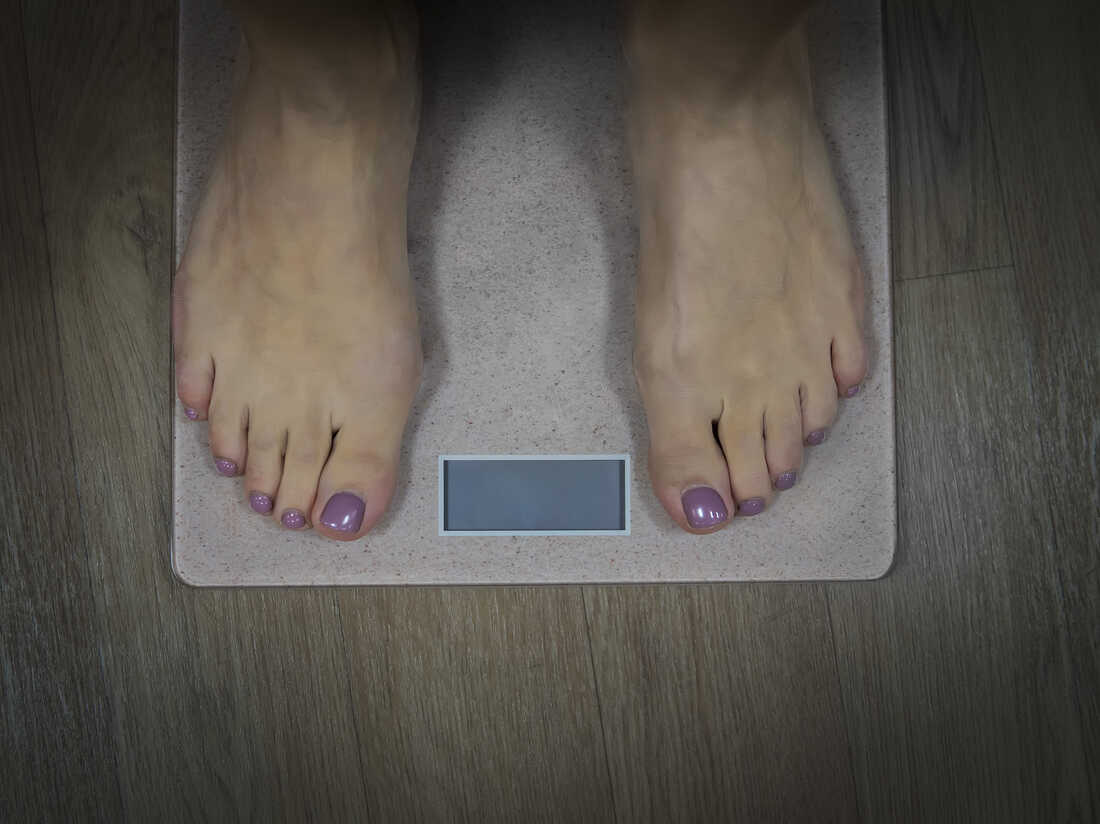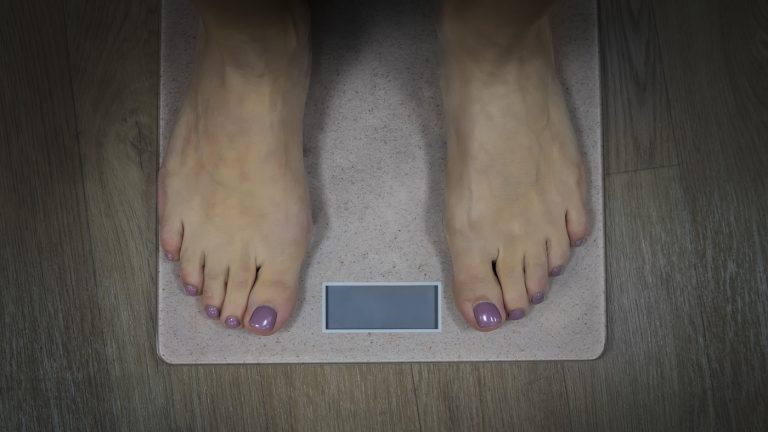

One day, while practicing primary care, one of my patients asked me to prescribe Ozempic. She recently gave birth, and her body has changed.
“I want my body back,” she told me.
Is her body really gone? I wondered privately. I've been having a lot of conversations like this lately, prompted by the onslaught of media coverage of Ozempic and Oprah's ecstatic endorsement of its benefits during a TV special she did this week.
My patient's blood pressure was normal, and her tests looked perfect. The only problem is that she's gained about 25 pounds over the past two years, most of which she spent pregnant and nursing a new human life. It's an amazing feat, and not surprisingly, it requires a little extra adipose tissue.
She had a long history of losing and regaining weight, and years of being pressured by family members to be thinner.
“I'm not sure Ozempic will bring you peace with your body,” she suggested gently. I told her medically I didn't think she needed to lose weight.
She was not deterred. “My clothes don’t fit,” she complained.
Was this a reason to start taking weight loss medication? Increasingly, my patients think so.
My clinic in New Jersey is full of people desperate to lose weight, and patients who believe their true selves are smaller than the bodies they actually live in.
I've written publicly about my holistic approach to medicine — I don't steer my patients toward weight loss, and I have a loyal following of patients who come to me specifically because I don't pester them about their body size.
But for every patient who seeks out my weight-neutral approach, I have ten who have been sold the lie that losing weight will solve every problem in their life. This myth is not new, but has been recently medicalized in the era of Ozempic and Wegovy, a class of drugs known as GLP-1 agonists. Patients show up at my door, eager to receive the promised panacea.
Even Oprah, whose body size has been a topic of national attention for decades, seems to buy into the hype.
She has publicly announced that she will be using the GLP-1 drug in 2023. She told viewers on her prime-time special that she is “shedding the stigma, shame and judgement” that comes with living in a larger body — something she supposedly can do now because she's thin.
She doesn't stop to wonder if fatphobia is the problem, not fat people.
I have had patients cry with frustration when I point out that their weight is “healthy” and their labs show no evidence of diabetes. Instead of being thrilled that they received a clean bill of health, they are upset that their insurance won't pay for GLP-1 agonists.
Patients have admitted that they believe Ozempic will give them higher self-esteem, a happier marriage, more energy, and less back pain. People seem convinced that this drug can do it all.
It's really no surprise that my patients overestimate the therapeutic powers of this once-a-week injection. Our society is obsessed with thinness. We have a diet industry worth billions of dollars a year, one that thrives and perpetuates a pervasive feeling that our bodies are never good enough. When life gets tough or the news becomes unbearable, we're told to work on ourselves, and squeeze in a little self-care: a little Peloton here, a little intermittent fasting there.
Ozempic fits perfectly and is a medical solution to all the problems that supposedly accompany obesity. Instead of addressing discrimination against people with larger bodies, we ask patients to fix themselves.
The new weight-loss drugs have a veneer of respectability—doctors prescribe them, anyway—that makes them seem different from HerbaLIfe or Weight Watchers. But, like all the weight-loss promises that came before them, they are oversold.
Sales of Ozempic and Wegovy are estimated at about $13 billion annually, representing a real windfall for Novo Nordisk, the Danish pharmaceutical company that developed the blockbuster drugs. They have a decent marketing budget: The company spent $491 million on advertising in the first half of 2023. With budgets like that, it's no wonder my patients think Ozempic is a miracle drug.
Doctors are perhaps the most guilty of perpetuating the myth that losing weight solves everything. My field's obsession with BMI means that many of my colleagues focus on weight loss as a panacea.
“Have you thought about losing weight?” Doctors ask when patients complain of anything from insomnia to hot flashes to foot pain. Meanwhile, my patients share stories of missed diagnoses from doctors who focus on their weight and forget that obese patients may have other diseases. Fatphobia has become so ingrained in medical culture that it's hard to see it, unless you look closely.
The weight loss industry tells us that if we lose just a few pounds, we'll finally be happy. But the industry has created a problem that can only be solved by more dieting — or more medications. It tells us that the body is something that must be tamed throughout our lives. If we don't stay vigilant, the pounds could come back. So we keep buying supplements, and we keep paying monthly fees for weight loss apps. We doctors continue to prescribe Ozempic.
When I decided, at age 22, to become a doctor, I envisioned long-term relationships with my patients and earning their trust. I didn't think I would be complicit in the culture of fatphobia, the promotion of diet pills and all their false promises.
However, this industry is very powerful, and it is difficult to escape from it. When I suggest to patients that Ozempic may not be medically necessary, they shrug their shoulders. They say, “Okay, I'll get it online,” in any number of telehealth services where patients can self-report at what weight they'll get the prescription.
To be clear: I am not anti-Ozembek. GLP-1 drugs Can Solve specific problems. It is a pleasure to prescribe it to many of my patients who suffer from diabetes or heart disease, and I am grateful to the researchers who developed it. I even prescribe it to people who simply want to lose weight, because supporting their body autonomy is my duty as their doctor.
But I want them to know that there are a lot of things that these medications don't do.
It doesn't undo the damage of diet culture, distorted body image, and pervasive weight stigma. It does not change the way we have turned eating into a moral contest, and the way the pleasure and rituals of sharing food with loved ones have been weaponized against us. These drugs don't help us feel grateful for our bodies—the bodies that climb mountains, give birth to babies, and hug grandparents. They don't fix the casual self-loathing that's been normalized in our fatphobic world.
When I watched Oprah's weight loss special, I felt mostly sad. She shared painful testimonials from people who felt ashamed to leave the house because of their body size, including one Chicago-area mother who said people started treating her children better once she lost weight.
Sure, GLP-1 medications have helped some of Oprah's guests with their diabetes and changed the way the world treats them, but the real issue behind their suffering isn't entirely medical. The problem is fat phobia.
Dealing with this stigma is a major challenge, but acknowledging it – and understanding that Ozimbek is a woefully inadequate tool for addressing it – is a good first step. What if instead of trying to shrink ourselves, we tried to change our biases? What if we built a world where diverse bodies were valued, not treated so that they took up less space?
For my patient who ordered Ozempic the other day, I told her that it is normal for bodies to change shape and size over time. She met my eyes and, through tears, admitted that she felt like her true self—her tender self—was waiting to emerge.
“How would it feel to love your body as it is?” I asked. My patient had no answer.
Mara Gordon is a family physician in Camden, New Jersey, and an NPR contributor. She's on Twitter as @MaraGordonMD.

